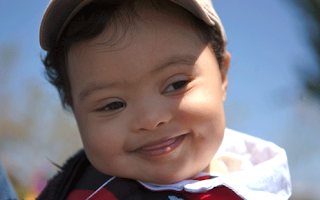Pediatricians testify on how GME funding structure
stifles training programs, impacts workforce shortages
- Lori O’Keefe, Correspondent
A pediatric resident in Washington, D.C., and a California pediatrician/state assembly member took on the voice of the Academy recently when they advocated for proper funding for children’s teaching hospitals to meet future pediatric workforce demands.
“The annual appropriations process through which the children’s hospital GME funding is approved each year actively discourages innovation or expansion in children’s hospital training programs. My hospital, as an example, has been unable to expand to the degree we hoped in order to meet the projected workforce needs because although each resident trains for three years, congressional funding is only approved for one.”
SOURCES OF FUNDING FOR TRAINING PROGRAMS This was part of the testimony that Heidi K. Schumacher, M.D., provided at a December public hearing held by the Institute of Medicine (IOM) Committee on the Governance and Financing of Graduate Medical Education (GME). Dr. Schumacher, a third-year pediatric resident at Children’s National Medical Center in Washington, D.C., spoke as an AAP representative to advocate for proper funding of programs that support training of general pediatricians, pediatric subspecialists and pediatric surgical specialists.
The IOM committee is reviewing the structure of GME financing and governance, and will release its recommendations in December.
Currently, the primary funding source of residency and fellowship training is the Medicare GME program, which pays $9 billion annually to teaching hospitals. Because children’s hospitals do not treat Medicare patients, Medicare does not pay for GME training at children’s hospitals. Instead, the majority of financing for training at 55 freestanding children’s hospitals in 29 states comes from the Children’s Hospital GME (CHGME) Payment Program, which was created to compensate for the lack of Medicare GME funding at children’s hospitals.
Unlike Medicare, CHGME appropriations are made annually, making it difficult for children’s hospitals to develop long-term training plans. Medicaid also provides some GME financing, but many states have or are planning to cut this program, and there have been proposals to reduce the Medicare GME and CHGME programs, as well.
Children’s hospitals train approximately 49% of general pediatricians and 51% of pediatric subspecialists, according to the Children’s Hospital Association. The remainder are trained at general hospitals, where paying to train physicians who do not care for Medicare patients has been questioned.“There is a critical need for stable funding to meet workforce needs,” said Mary Ellen Rimsza, M.D., FAAP, chair of the AAP Committee on Pediatric Workforce. “If there is not stable funding, then training programs are reticent to start or maintain training programs.”
ACCESS TO SUBSPECIALISTS IN JEOPARDY
Many pediatric subspecialties already are experiencing severe shortages. More funding cuts could have a further detrimental impact on training and, ultimately, the workforce. In 2011, only 26 first-year fellows were training in adolescent medicine, 35 in developmental-behavioral pediatrics and 32 in pediatric rheumatology, according to the American Board of Pediatrics.
Patients can wait 14½ weeks for an appointment with a pediatric developmental specialist and nearly eight weeks to see a pediatric dermatologist. Five other subspecialties have wait times longer than seven weeks. In addition, one in three children must travel more than 40 miles to see pediatric specialists in adolescent medicine, developmental-behavioral pediatrics, neurodevelopmental disabilities, pulmonology, emergency medicine, nephrology, rheumatology and sports medicine.
MAKING THEIR CASE
“In light of budgetary issues that have come up, we need to make a strong case and effort to explain why GME funding is a public good and why it’s in the public’s best interest to support GME,” said Richard J. Pan, M.D., M.P.H., FAAP, a pediatrician and California assembly member who also testified before the IOM committee on behalf of the Academy. Dr. Pan is a former member of the AAP Committee on Pediatric Workforce and a co-author of the AAP policy statement on GME financing.
“In general, I feel good that we are having discussions about this issue and that information is being brought forward from all of the stakeholders in order to decide the best approach to take to continue to finance GME in this country,” Dr. Rimsza said. “What we can hope for is a better understanding by policymakers of the importance of GME because if we want an adequate workforce, then they need to be thinking about who they are training and how they are being trained and set priorities to accomplish those goals.”Both Drs. Pan and Schumacher said the IOM committee members were receptive to their testimonies. Dr. Schumacher said she and her fellow panel members were asked their opinions about paying tuition for training, the role of mentorship, offering incentives to residents to address workforce issues and what they would change about their training.








